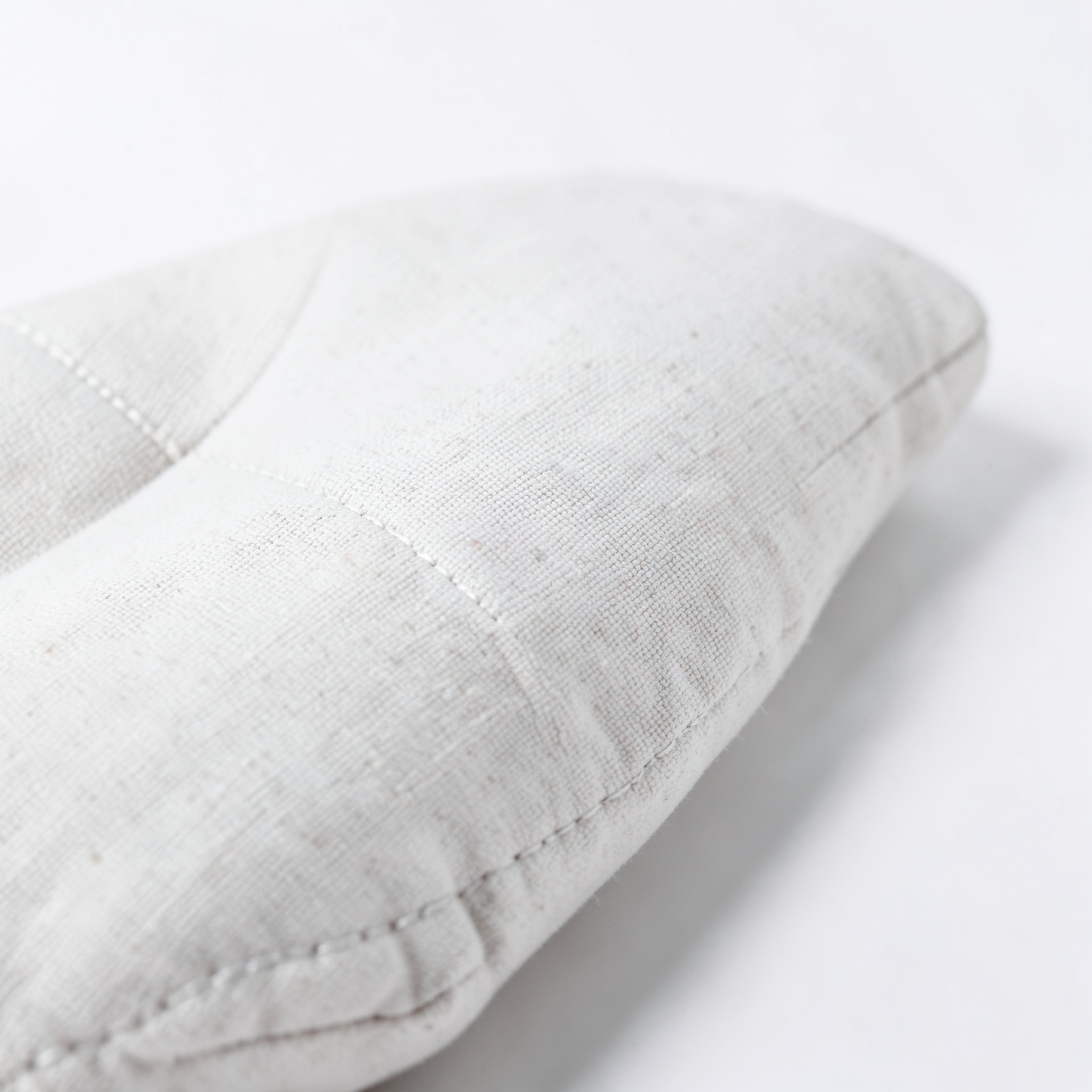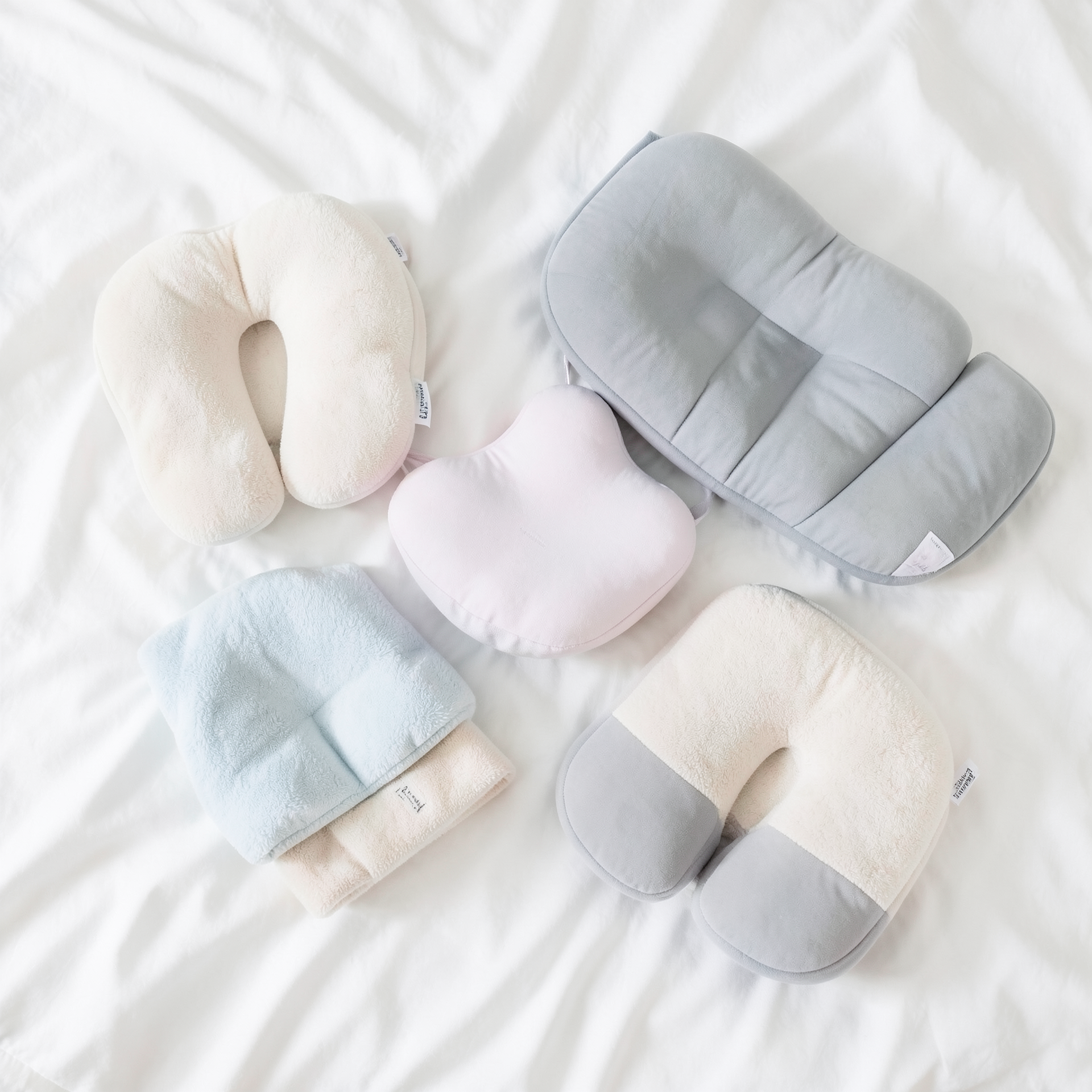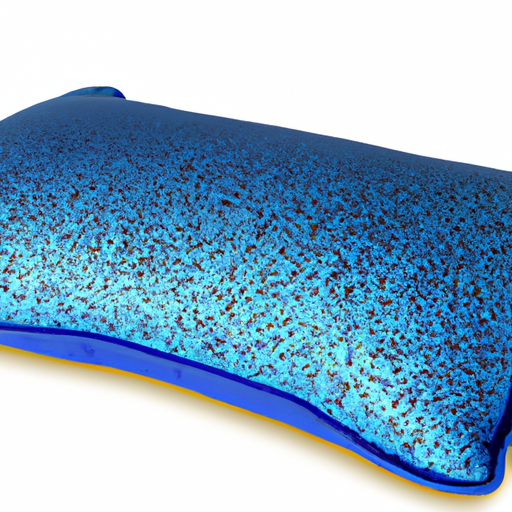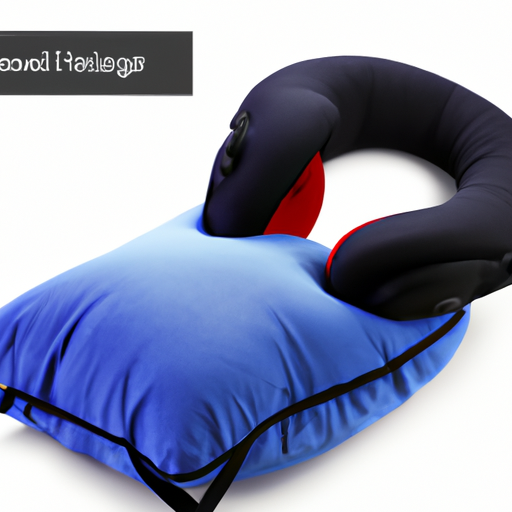Introduction
Snoring, a common sleep disturbance, affects approximately 40% of adults and often disrupts sleep quality for both the snorer and their bed partner. Snoring sounds originate from vibrations of the soft tissues in the upper airway. Fortunately, specialized pillows can address snoring by optimizing sleep posture and airway alignment. This comprehensive guide explores various pillow types designed to minimize snoring, offering practical advice for selecting the most effective option.
Problem: Snoring disrupts sleep and can lead to daytime fatigue.
Persona: This guide targets individuals who snore and their sleep partners.
Method: This guide provides solutions through pillow selection and sleep positioning.
Tool: The primary tool discussed is the anti-snoring pillow.
Constraint: Pillow effectiveness varies based on individual anatomy and snoring severity.
Use Case: Selecting a pillow to minimize snoring and improve sleep.
Metric: Reduction in snoring frequency and improved sleep quality.
Alternative: Other snoring solutions include nasal strips, CPAP machines, and lifestyle changes.
Understanding the Science of Snoring

Snoring arises from the partial obstruction of the upper airway during sleep. This obstruction causes soft tissues, such as the uvula and soft palate, to vibrate, generating the characteristic snoring sound. Factors contributing to snoring include nasal congestion, obesity, alcohol consumption, and sleeping position. Pillows designed for snoring aim to mitigate these factors by promoting optimal airway alignment.
Anatomical Factors
The anatomy of the upper airway significantly influences snoring. A narrow airway, enlarged tonsils, or a long soft palate can increase the likelihood of airway obstruction. Pillows can indirectly address these anatomical factors by encouraging sleeping positions that minimize airway collapse. For example, side sleeping, often facilitated by specialized pillows, reduces the gravitational pull on the soft tissues of the throat.
The Role of Sleep Position
Sleep position profoundly impacts snoring. Back sleeping exacerbates snoring because gravity pulls the tongue and soft tissues downwards, narrowing the airway. Side sleeping, conversely, helps maintain an open airway by preventing the collapse of these tissues. Pillows designed for side sleepers often feature a higher loft to support the head and neck, ensuring proper spinal alignment.
Key Features of Effective Anti-Snoring Pillows
Effective anti-snoring pillows share several key features that contribute to their ability to reduce snoring. These features include optimal loft, appropriate firmness, and specialized designs that promote proper sleep posture.
Loft and Spinal Alignment
Pillow loft, or height, plays a crucial role in maintaining proper spinal alignment and opening the airway. The ideal loft varies depending on sleeping position. Side sleepers generally require a higher loft to fill the space between the head and shoulder, while back sleepers need a lower loft to prevent excessive neck flexion. Adjustable pillows offer a customizable loft, catering to individual preferences and anatomical variations. Adjustable pillows provide custom comfort for every sleep position, ensuring optimal spinal alignment and reduced snoring.
Firmness and Support
Pillow firmness affects the level of support provided to the head and neck. A pillow that is too soft may not offer adequate support, allowing the head to sink and potentially obstructing the airway. Conversely, a pillow that is too firm can cause discomfort and neck pain. Medium-firm pillows generally provide the best balance of support and comfort for snorers. Memory foam pillows, known for their contouring properties, offer excellent support and pressure relief.
Specialized Designs
Several specialized pillow designs target snoring by promoting specific sleep positions or providing enhanced support. Wedge pillows elevate the upper body, reducing the effects of gravity on the airway. Contour pillows feature a recessed center to cradle the head and support the neck. Cervical pillows are designed to maintain the natural curvature of the spine, further optimizing airway alignment.
Types of Pillows for Snoring

The market offers a variety of pillows designed to reduce snoring. Each type boasts unique features and benefits. Understanding these differences is crucial for selecting the most suitable option.
Wedge Pillows
Wedge pillows elevate the upper body, reducing snoring by minimizing the gravitational pull on the tongue and soft tissues of the throat. This elevation can also alleviate acid reflux and improve breathing for individuals with sleep apnea. Wedge pillows are typically made of foam and come in various inclines, allowing users to customize the level of elevation. The elevated position that sleep apnea pillows create can significantly improve breathing.
Contour Pillows
Contour pillows, also known as orthopedic pillows, feature a recessed center that cradles the head and supports the neck. This design promotes proper spinal alignment and helps keep the airway open. Contour pillows are often made of memory foam, which conforms to the shape of the head and neck, providing customized support. The conforming support of memory foam pillows can lead to a more restful night.
Cervical Pillows
Cervical pillows are specifically designed to support the natural curvature of the spine. These pillows help maintain proper spinal alignment, reducing neck pain and promoting optimal airway alignment. Cervical pillows are often recommended for individuals with neck pain or stiffness. Proper spinal alignment is crucial for reducing snoring and improving sleep quality. Pillows for neck and shoulder pain can significantly alleviate discomfort and promote better sleep.
Side Sleeper Pillows
Side sleeper pillows feature a higher loft on one side to accommodate the space between the head and shoulder. This design ensures proper spinal alignment and prevents the head from tilting downwards, which can obstruct the airway. Side sleeper pillows often have a contoured shape to further enhance support and comfort. Finding the right side sleeper pillow is essential for maintaining spinal alignment and reducing snoring.
Choosing the Right Pillow: A Step-by-Step Guide
Selecting the right pillow for snoring involves careful consideration of individual needs and preferences. This step-by-step guide provides practical advice for making an informed decision.
Step 1: Determine Your Sleeping Position
Your primary sleeping position significantly influences the type of pillow you need. Side sleepers require a higher loft pillow to maintain spinal alignment, while back sleepers need a lower loft pillow to prevent excessive neck flexion. Stomach sleepers generally require a very thin pillow or no pillow at all.
Step 2: Consider Pillow Fill Material
Pillow fill materials vary in terms of support, comfort, and breathability. Memory foam conforms to the shape of the head and neck, providing excellent support and pressure relief. Down and feather pillows offer a soft and luxurious feel but may not provide adequate support for snorers. Latex pillows are durable and hypoallergenic, offering a balance of support and comfort. Bamboo pillows are soft, supportive, and sustainable, providing a comfortable and eco-friendly sleep experience.
Step 3: Assess Pillow Firmness
Pillow firmness affects the level of support provided to the head and neck. A pillow that is too soft may not offer adequate support, while a pillow that is too firm can cause discomfort. Medium-firm pillows generally provide the best balance of support and comfort for snorers. Consider trying different firmness levels to determine your personal preference.
Step 4: Evaluate Pillow Loft
Pillow loft, or height, is crucial for maintaining proper spinal alignment and opening the airway. The ideal loft varies depending on your sleeping position. Side sleepers generally require a higher loft, while back sleepers need a lower loft. Adjustable pillows offer a customizable loft, allowing you to fine-tune the pillow to your exact needs.
Step 5: Read Reviews and Seek Recommendations
Before making a purchase, read online reviews and seek recommendations from friends, family, or healthcare professionals. Customer reviews can provide valuable insights into the performance and durability of different pillows. Healthcare professionals can offer personalized recommendations based on your individual needs and health conditions.
The Pros and Cons of Pillows for Snoring

While pillows designed for snoring offer numerous benefits, they also have potential drawbacks. Understanding these pros and cons can help you make an informed decision.
Pros
- Reduced Snoring: Pillows designed for snoring can effectively reduce snoring by promoting optimal airway alignment and reducing the gravitational pull on the soft tissues of the throat.
- Improved Sleep Quality: By reducing snoring, these pillows can improve sleep quality for both the snorer and their bed partner.
- Neck Pain Relief: Many pillows designed for snoring also provide excellent support for the neck, reducing neck pain and stiffness.
- Non-Invasive Solution: Pillows offer a non-invasive and relatively inexpensive solution for snoring compared to other treatments such as surgery or CPAP machines.
Cons
- Varying Effectiveness: The effectiveness of pillows for snoring can vary depending on individual anatomy and snoring severity.
- Adjustment Period: It may take some time to adjust to a new pillow, especially if it has a different shape or firmness than your previous pillow.
- Cost: Some specialized pillows designed for snoring can be expensive.
- Not a Cure-All: Pillows may not completely eliminate snoring, especially in cases of severe sleep apnea.
Integrating Pillows with Other Snoring Solutions
While pillows can be an effective tool for reducing snoring, they are often most effective when used in conjunction with other snoring solutions. These solutions may include lifestyle changes, medical devices, and surgical procedures.
Lifestyle Changes
Lifestyle changes can significantly reduce snoring. These changes include losing weight, avoiding alcohol before bed, quitting smoking, and sleeping on your side. Weight loss reduces the amount of tissue in the throat, reducing the likelihood of airway obstruction. Avoiding alcohol before bed reduces muscle relaxation, preventing the collapse of soft tissues in the throat. Quitting smoking improves respiratory function, reducing nasal congestion and airway inflammation.
Medical Devices
Several medical devices can help reduce snoring. Nasal strips open the nasal passages, improving airflow and reducing snoring caused by nasal congestion. Mandibular advancement devices (MADs) advance the lower jaw, opening the airway and reducing snoring. Continuous positive airway pressure (CPAP) machines deliver pressurized air through a mask, keeping the airway open and preventing snoring and sleep apnea.
Surgical Procedures
Surgical procedures can be used to correct anatomical abnormalities that contribute to snoring. Uvulopalatopharyngoplasty (UPPP) removes excess tissue from the throat, widening the airway. Tonsillectomy removes the tonsils, reducing airway obstruction. Septoplasty corrects a deviated septum, improving nasal airflow.
Frequently Asked Questions (FAQ)
This section addresses common questions about pillows for snoring, providing clear and concise answers.
Q: Can a pillow really stop me from snoring?
A: Pillows designed for snoring can significantly reduce snoring by promoting optimal airway alignment and reducing the gravitational pull on the soft tissues of the throat. However, they may not completely eliminate snoring in all cases, especially if the snoring is caused by severe sleep apnea or other underlying medical conditions.
Q: What type of pillow is best for snoring?
A: The best type of pillow for snoring depends on individual preferences and sleeping position. Wedge pillows elevate the upper body, reducing the effects of gravity on the airway. Contour pillows support the head and neck, promoting proper spinal alignment. Side sleeper pillows provide extra support for side sleepers, preventing the head from tilting downwards and obstructing the airway.
Q: How often should I replace my pillow?
A: Pillows should be replaced every 1-2 years, depending on the fill material and usage. Over time, pillows lose their support and can accumulate dust mites and allergens, which can exacerbate snoring and allergies.
Q: Are there any side effects to using a pillow for snoring?
A: Some individuals may experience neck pain or stiffness when first using a new pillow, especially if it has a different shape or firmness than their previous pillow. This is usually temporary and can be alleviated by adjusting the pillow or using a different type of pillow.
Q: Where can I buy pillows for snoring?
A: Pillows designed for snoring are available at most major retailers, including department stores, bedding stores, and online retailers.
Conclusion
Choosing the right pillow represents a crucial step in managing snoring and enhancing sleep quality. By understanding the various pillow types, features, and benefits, individuals can make informed decisions that align with their specific needs and preferences. Integrating pillow use with lifestyle modifications and, when necessary, medical interventions further optimizes the potential for a restful and snore-free night. Remember to consider your preferred sleep position when selecting a pillow; bed pillows for sleep positioning can significantly impact your sleep quality.


